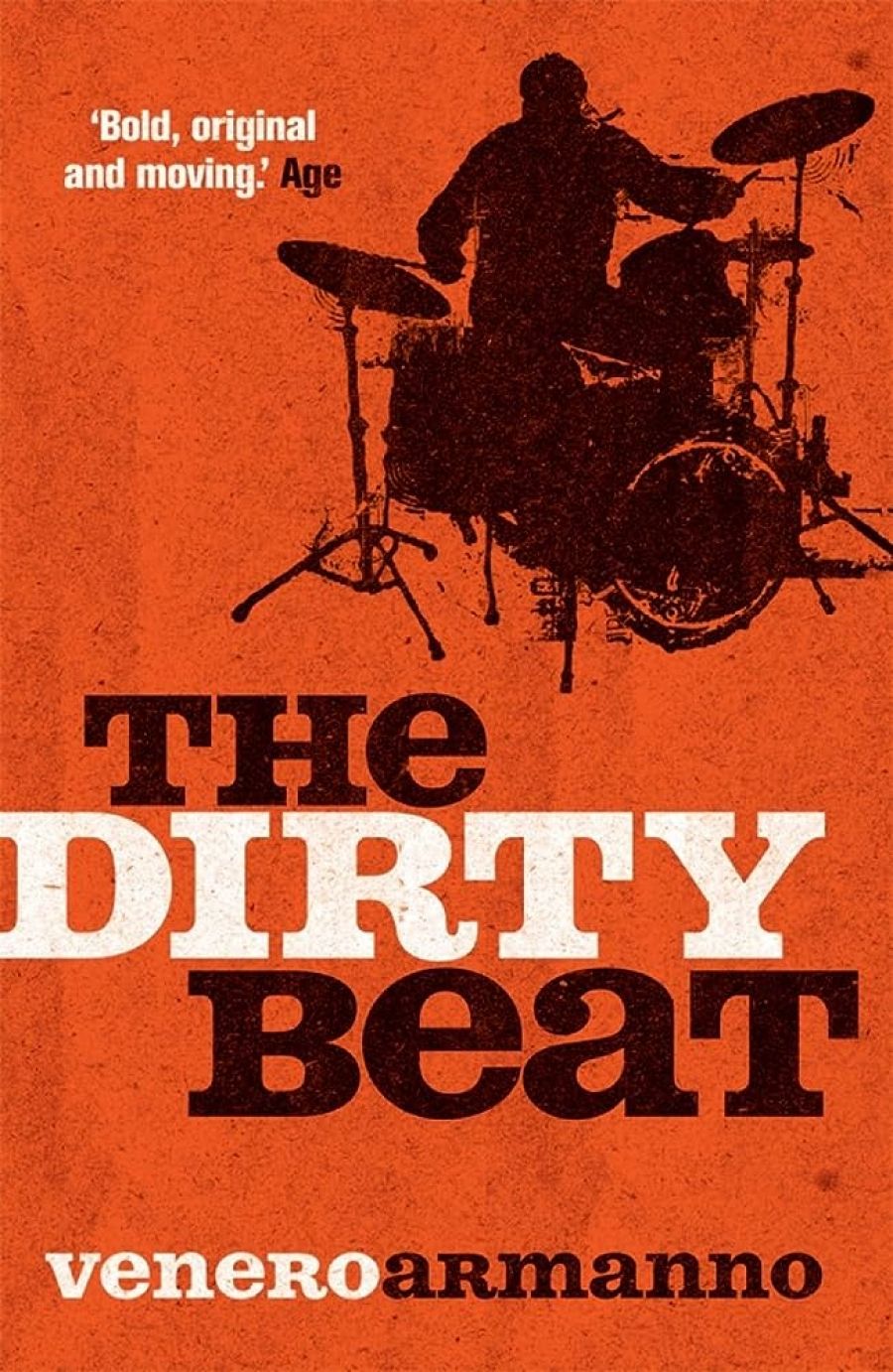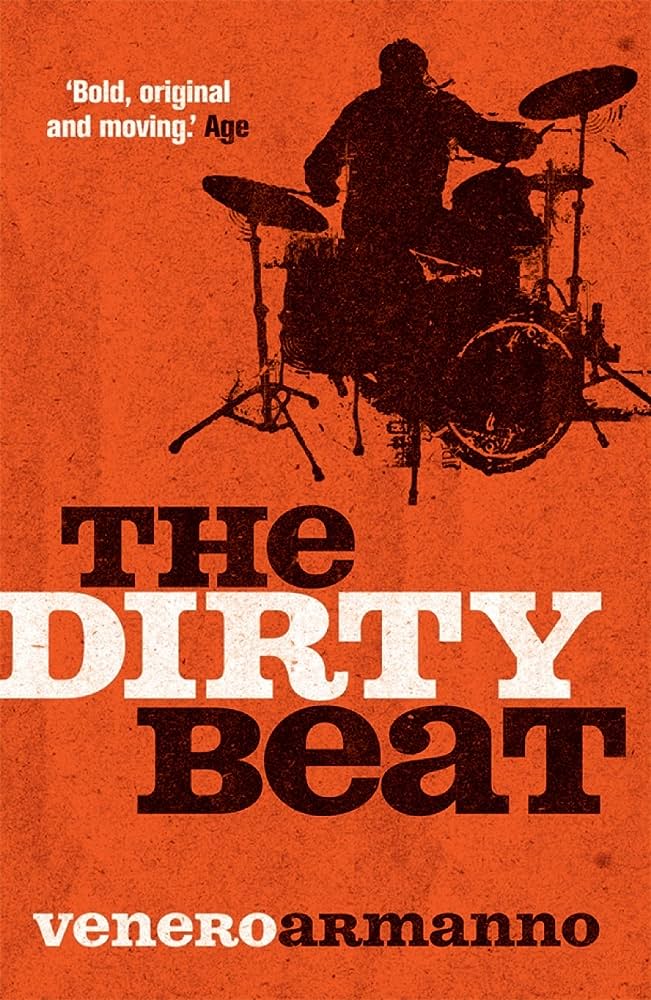
- Free Article: No
- Contents Category: Fiction
- Review Article: Yes
- Article Title: The Low-Down
- Online Only: No
- Custom Highlight Text:
Rock’n’roll romanticism can stand in for many things: the sense of lost authenticity, lost freedom, lost youth, the good old days before music was composed by machines and performed by underwear models and all the pubs were turned into gambling venues. The passion, the music, the soul: Venero Armanno’s new novel is about all that, though one of its main faults is that it is always telling you what it is about rather than making you feel it. It is not primarily self-congratulatory – Armanno makes fun of rock wannabes always on the verge of failure – but that note is never far off, and the book still seems to be trying to write its own blurb.
- Book 1 Title: The Dirty Beat
- Book 1 Biblio: UQP, $32.95 pb, 274 pp
- Book 1 Cover Small (400 x 600):

- Book 1 Cover (800 x 1200):

The Dirty Beat is narrated by Max, a rock and jazz musician, as he lies in the casket at his own funeral. Desperate Housewives, anyone? Not to mention American Beauty, Sunset Boulevard or The Lovely Bones. (This conceit could well be put to rest for a while.) The ghoulish humour that Armanno derives from the set-up gives him opportunities for lots of false notes, beginning with the opening paragraph’s description of the medical examiners’ sawing through his skull and removing his brain – the worst kind of lapel-grabbing start. It had me wondering how many fifty-year-olds who die suddenly after years of hard living get autopsies, which must have struck Armanno as well, as he has a cop murmuring about drugs and the rock’n’roll world. As Max lies there, he considers the mourners and their part in his life on the margins of the rock world, from his adolescence in the 1970s to almost making it and a new career as a sound engineer to a band of young hopefuls, Dirtybeat.
Armanno seems to be outside his story. The book reads like a series of drafts towards the kind of book he would like to write, or would like you to think you are reading. Part of this is that Armanno’s ear really isn’t good; the lyricism dances over its objects without illuminating them, and his purple passages are liable to be dragged to earth by clichés or inept phrases. Much of the book is written in something resembling journalese, inertly and voicelessly filling us in on the five-Ws, and the reflective passages tend to sound like this as well. This is Max reflecting on his barfly period:
Many, more than I could have imagined, told me their own stories. Infidelities, acts of cruelty, petty betrayals and lives ruined by a split-second of unexpected violence. It struck me how these men seemed victims too, victims of nothing but themselves and the unbreakable cycles they’d created. At their core you found unhappiness, desperation and, more often than not, booze.
You don’t say. Miserable sots are what you get, I guess, when you hang out with the sort of people who hang out in pubs. The rhythm suggests that we are getting the low-down on life, but with the bathos and numbness of thought and expression, this barely amounts to pseudo-profundity. The writing throughout suffers from a lack of attention to what the words are actually saying, what they sound like and the pictures they bring to mind.
Debbie Canova is the lost girl of the piece, the damaged siren. We meet her in a country town where the band has a gig playing at school fête. She goes on to violin on their only record, becoming the wayward muse.
Tony [a friend of Max, who sells out big time, i.e. becomes a property developer] knows what it is: she came into his life at the point of his deepest low, when everything seemed finished and his future as empty as a politician’s promise. He was at his most open and most vulnerable, then suddenly here was someone who promised a life for him – a Life – and he’d believed her. She was redemption from failure. She hadn’t been a girl, she’d been Hope … The hook was this and this alone: during those good nights in each other’s arms her quiet voice would whisper in his ear, and with those whispers she would effortlessly reveal her soul.
So Debbie is a type of male fantasy, the girl who makes everything better. But Armanno’s insight into that way of thinking about women is undermined by the terms in which he himself describes her. Later we find out what she is hiding when she reveals her soul. It turns out to be adolescent sexual trauma, which is as you might expect, but at the time the phrase just comes across as hot air, and ‘effortlessly’ strikes the customary wrong note; he might be more transfixed, you would think, if she had revealed herself with some difficulty. It is not that her character, or the others in the book, are improbable in the strict Aristotelian sense – the book is full of recognisable types – but you don’t believe in them, because Armanno hasn’t made them live.
Few things are more deadly than a book that aspires to be full of fire and music but turns out to be a damp squib.


Comments powered by CComment